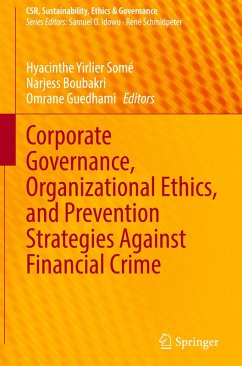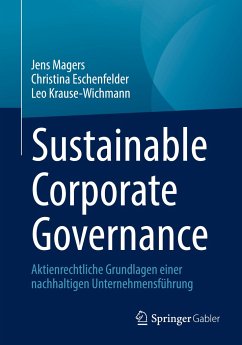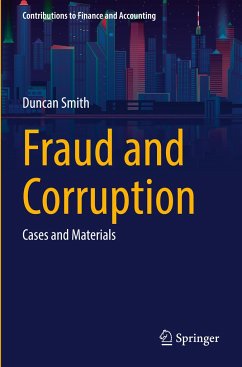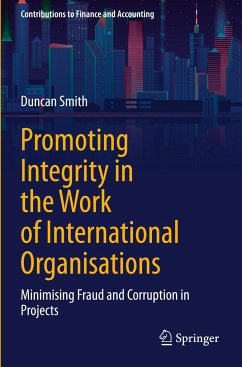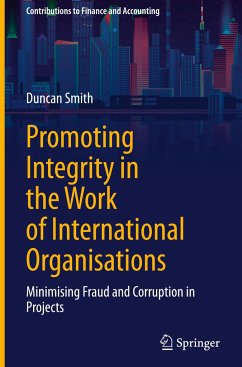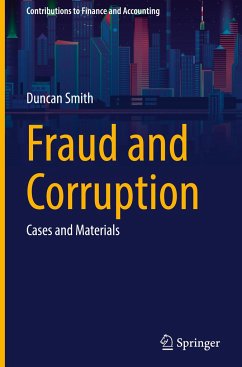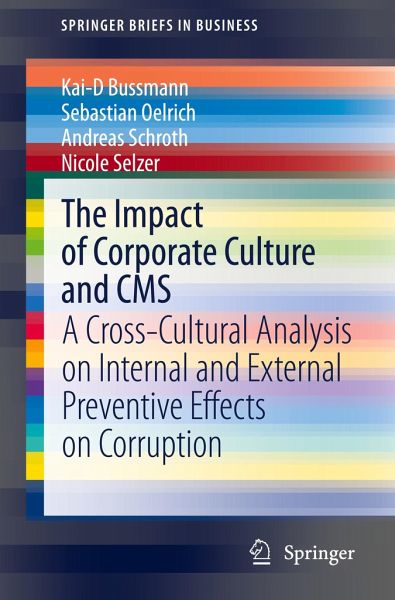
The Impact of Corporate Culture and CMS
A Cross-Cultural Analysis on Internal and External Preventive Effects on Corruption

PAYBACK Punkte
27 °P sammeln!
Entering developing markets, companies are challenged by various cultures and widespread corruption. This book is a cross-cultural survey that explores the crime preventive effects of corporate cultures and compliance management systems (CMS) in China, India, Russia and Germany. Almost 2,000 managers anonymously reported about the compliance programs in place and cultures in their companies as well as on their experience with corruption at work and in everyday life.Despite differences across countries, results suggest that the elements of an integrity-promoting corporate culture are similarly ...
Entering developing markets, companies are challenged by various cultures and widespread corruption. This book is a cross-cultural survey that explores the crime preventive effects of corporate cultures and compliance management systems (CMS) in China, India, Russia and Germany. Almost 2,000 managers anonymously reported about the compliance programs in place and cultures in their companies as well as on their experience with corruption at work and in everyday life.Despite differences across countries, results suggest that the elements of an integrity-promoting corporate culture are similarly important in their corruption preventive effects.
The second major result is that a CMS can develop its effectiveness only when combined with an appropriately practiced integrity-promoting company culture.
Third, companies can counteract the negative external influences of a corruption-prone national culture. Moreover, spill-over effects of an integrity-promoting company culture can make an important contribution to national cultural change. For this reason, an integrity-promoting corporate culture is a contribution to corporate social responsibility.
The second major result is that a CMS can develop its effectiveness only when combined with an appropriately practiced integrity-promoting company culture.
Third, companies can counteract the negative external influences of a corruption-prone national culture. Moreover, spill-over effects of an integrity-promoting company culture can make an important contribution to national cultural change. For this reason, an integrity-promoting corporate culture is a contribution to corporate social responsibility.





